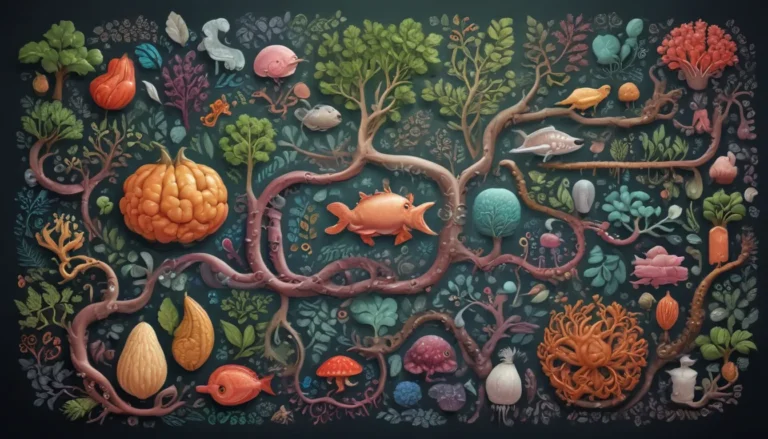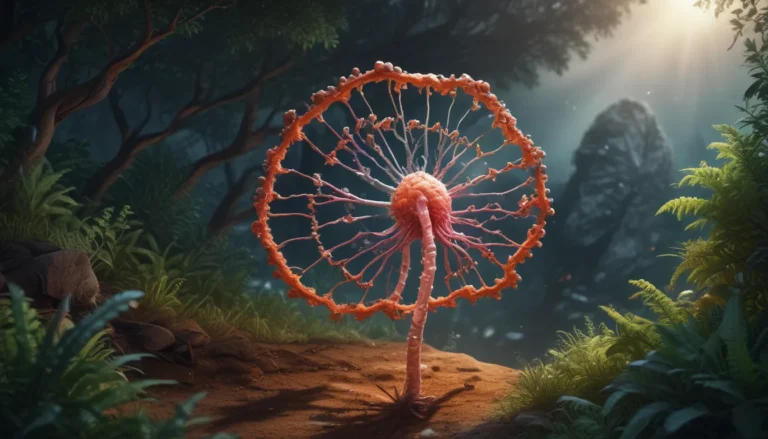A Note About Images: The images used in our articles are for illustration purposes only and may not exactly match the content. They are meant to engage readers, but the text should be relied upon for accurate information.
The gene pool, a reservoir of all genes and their variants within a population, serves as a genetic treasure chest that shapes the diversity and evolution of life on Earth. Understanding the intricacies of the gene pool is essential in unraveling the mysteries of genetic inheritance, adaptation, and evolution. In this article, we will explore 19 enigmatic facts about the gene pool that shed light on its role in shaping the wondrous complexity of life.
The Foundation of Genetic Variation
At its core, the gene pool encompasses all the genes and their variants present within a population, determining the genetic diversity that allows species to adapt to changing environments. This diversity is crucial for the survival and evolution of organisms as they face environmental challenges and opportunities.
Nurturing Genetic Diversity: Gene Flow and Natural Selection
Gene flow acts as a bridge between different populations, facilitating the exchange of beneficial traits and preventing the loss of genetic diversity. This movement of genes enhances the fitness of populations and contributes to their adaptability.
Natural selection, on the other hand, acts upon variations within the gene pool, favoring traits that increase an organism’s chances of survival and reproduction. Over time, these favorable traits become more prevalent in a population, driving evolutionary changes.
The Role of Mutations in Genetic Innovation
Mutations, random changes in DNA, introduce new alleles into the gene pool and generate genetic variation. These genetic alterations can give rise to novel phenotypes with selective advantages, contributing to the adaptability and resilience of populations.
Genetic Drift: The Unpredictable Force
Genetic drift, a random change in allele frequencies within a population due to chance events, can have a significant impact on small populations. This phenomenon may lead to the loss of certain alleles from the gene pool, shaping the genetic makeup of populations over time.
Migration and Sexual Reproduction: Fueling Genetic Diversity
Migration brings individuals with different genetic backgrounds into new populations, introducing new alleles and enhancing the overall genetic variation within the gene pool. This influx of genetic diversity paves the way for adaptation and evolution.
Sexual reproduction enables the shuffling and recombination of genes, creating new gene combinations in offspring. This genetic diversity contributes to adaptability and provides opportunities for populations to thrive in diverse environments.
Unlocking Evolutionary Relationships Through Genetic Sequencing
By comparing the genetic sequences of different species, scientists can unveil their evolutionary relationships. The similarities and differences in gene sequences offer valuable insights into shared ancestry and divergent evolutionary paths, enriching our understanding of the gene pool’s role in shaping biodiversity.
Conservation Efforts and Forensic Investigations: The Practical Applications of the Gene Pool
Maintaining high levels of genetic diversity in captive populations is essential for the long-term survival of endangered species. The broader the gene pool, the greater the chances of preserving adaptive traits and promoting resilience in conservation efforts.
In forensic investigations, analysis of DNA samples from crime scenes or missing persons can provide insights into the gene pool of specific populations, aiding in identifying suspects and establishing familial relationships through genetic analysis.
Ethical Considerations and Future Possibilities in Gene Editing
The emergence of gene editing technologies, such as CRISPR-Cas9, offers new possibilities for manipulating the gene pool. While this presents potential benefits in medicine, agriculture, and conservation, ethical considerations surrounding the alteration of genetic diversity continue to be subjects of debate.
Population Genetics: Unveiling the Dynamics of the Gene Pool
The study of population genetics examines the patterns and processes that shape the gene pool, offering insights into evolutionary dynamics and population history. By analyzing allele frequencies and genetic variation, scientists gain a deeper understanding of the genetic composition of populations.
The Dynamic Nature of the Gene Pool: Constant Evolution
The gene pool of a population is not static but perpetually evolving through the interplay of evolutionary forces such as natural selection, genetic drift, mutation, and gene flow. These dynamic processes shape the genetic diversity of populations and drive evolutionary changes over time.
The Gene Pool and Human Evolution: Tracing Ancestral Origins
Studying the genetic diversity of human populations unveils the history of human evolution and migration patterns. The gene pool provides valuable insights into our ancestral origins and the genetic adaptations that have shaped diverse human populations across the globe.
Human Impacts on the Gene Pool: Conservation Challenges and Genetic Homogenization
Human activities, including habitat destruction, pollution, and selective breeding practices, exert significant influences on the gene pool of both wild and domesticated species. These impacts can lead to genetic homogenization or the loss of valuable genetic diversity, posing challenges for conservation efforts.
The Promise of Future Discoveries: Enigmatic Depths of the Gene Pool
Continued research on the gene pool holds the potential to unlock new insights into evolutionary processes, population dynamics, and the genetic basis of complex traits. Exploring the enigmatic depths of the gene pool promises exciting discoveries that expand our understanding of the intricate tapestry of life.
Life’s Incredible Diversity: Shaped by the Gene Pool
From the smallest microorganism to the largest mammal, the gene pool has played a vital role in shaping the incredible diversity of life on Earth. It is a testament to the adaptability and complexity of the natural world, reflecting the interconnectedness of all living organisms through genetic inheritance.
Conclusion: Embracing the Mysteries of the Gene Pool
Unraveling the enigmatic world of the gene pool offers a captivating journey into the complexities of genetic inheritance, adaptation, and evolution. By delving into the depths of the gene pool, scientists continue to uncover new insights that expand our knowledge of life’s intricacies. The gene pool remains a dynamic reservoir of genetic diversity that shapes the evolution of species and holds the key to unlocking the potential of genetic research.
As we embark on this never-ending exploration of the gene pool, we are poised to unravel even more enigmatic facts that deepen our understanding of life’s remarkable complexities. Each discovery in the field of genetics opens doors to new possibilities and challenges, fueling our curiosity and driving us to explore the endless possibilities encoded within the gene pool.
FAQs: Unraveling the Mysteries of the Gene Pool
- What is a gene pool?
-
The gene pool refers to all the genes, both dominant and recessive, present within a specific population or species.
-
Why is the gene pool important?
-
The gene pool is crucial for genetic diversity, which enables species to adapt and survive in changing environments.
-
How does the gene pool affect evolution?
-
The gene pool contains variations that drive natural selection and evolutionary changes, shaping the adaptation and speciation of organisms.
-
Can the gene pool change over time?
-
Yes, the gene pool can evolve through mechanisms like genetic drift, mutation, gene flow, and natural selection.
-
How do scientists study the gene pool?
- Scientists utilize techniques like DNA sequencing, genetic mapping, and population genetics analysis to investigate the genetic composition and dynamics of the gene pool.
Unraveling the enigmas of the gene pool sparks curiosity and leads to a deeper appreciation of life’s incredible tapestry. By exploring genetic diversity, conservation efforts, and the influences of human activities, we gain insights into the intricate dance of genes across generations. Each discovery in the field of genetics promises to broaden our understanding of the gene pool’s role in shaping the wondrous diversity of life on Earth.






